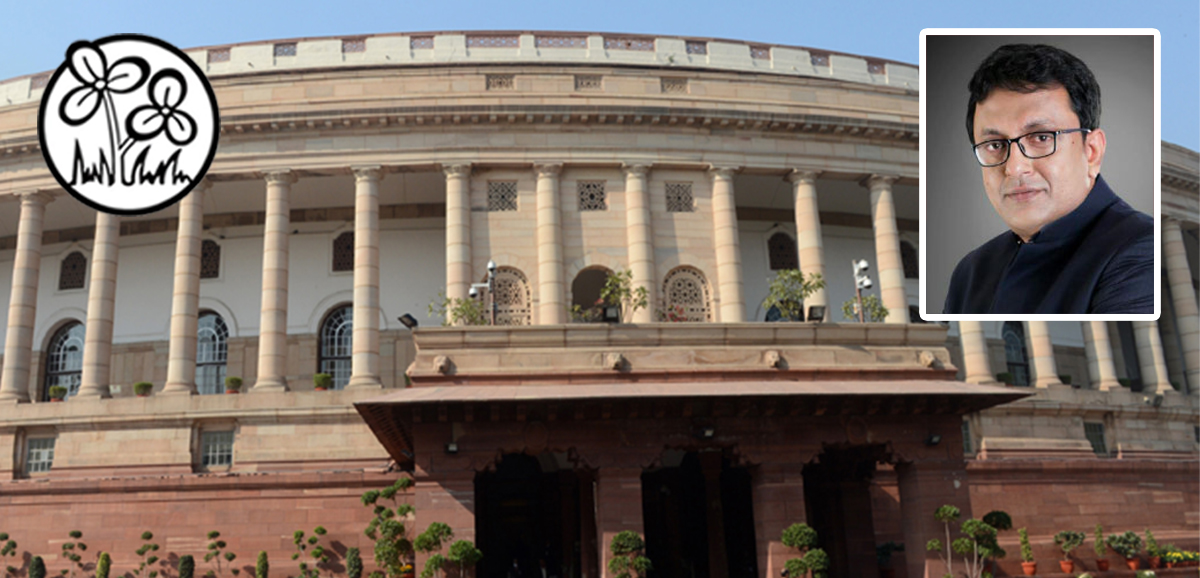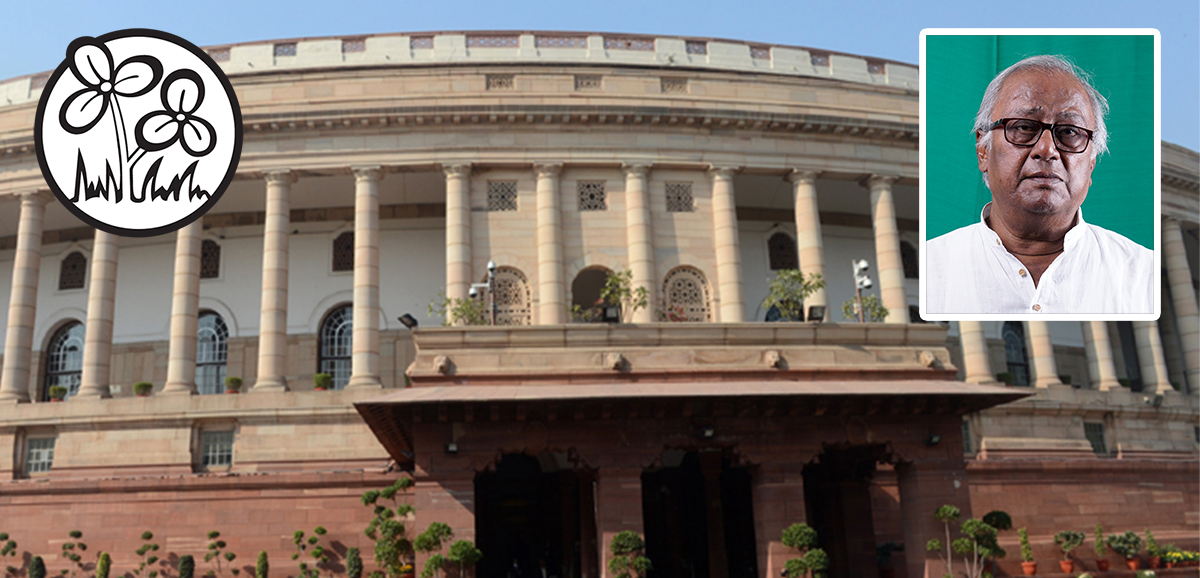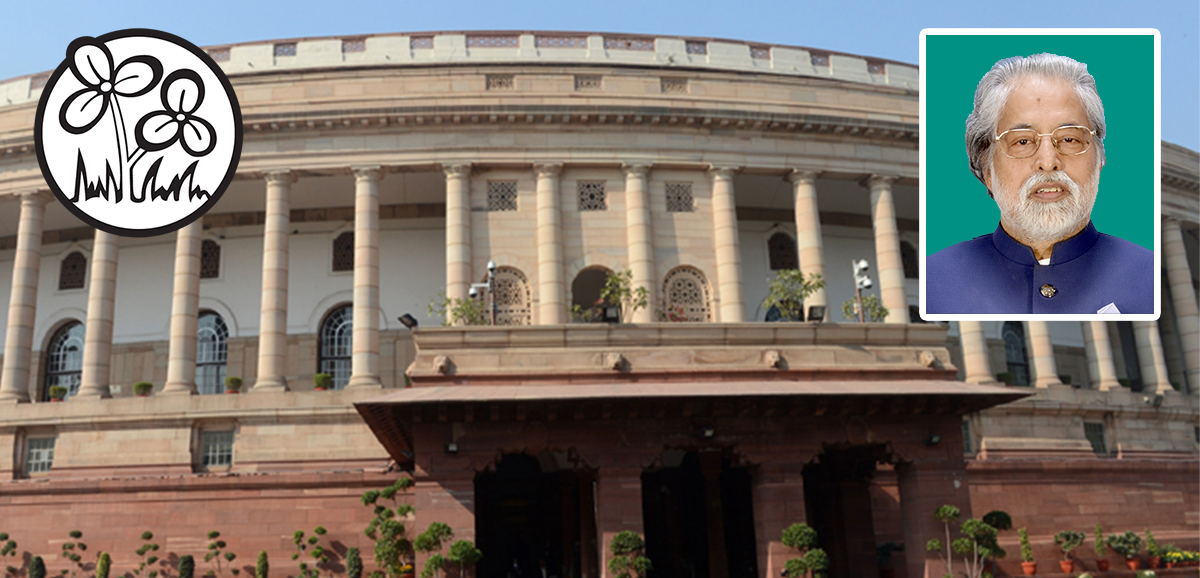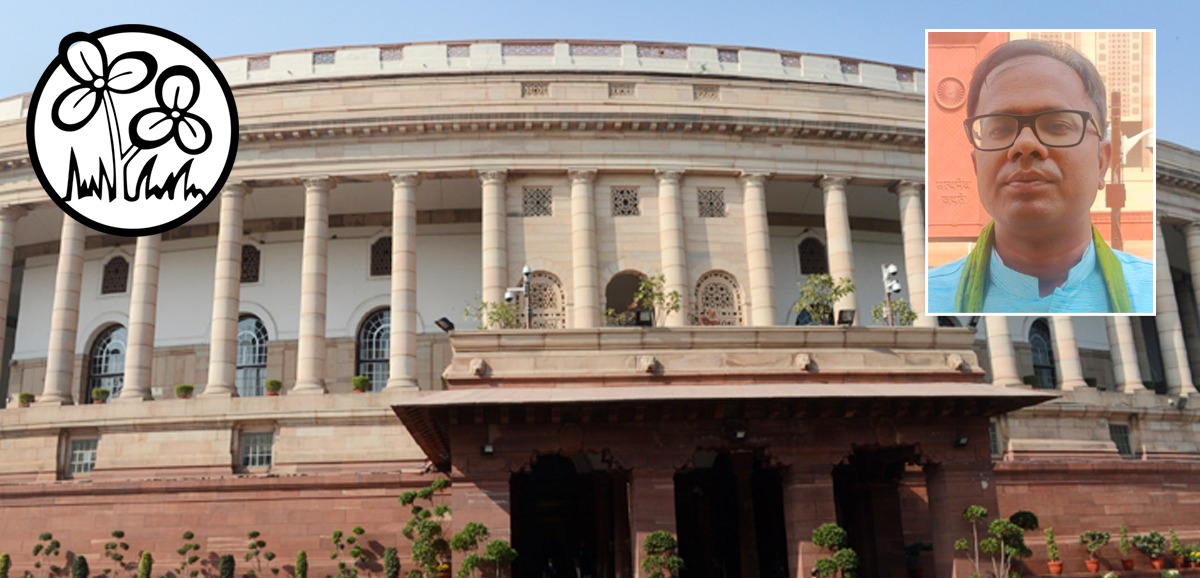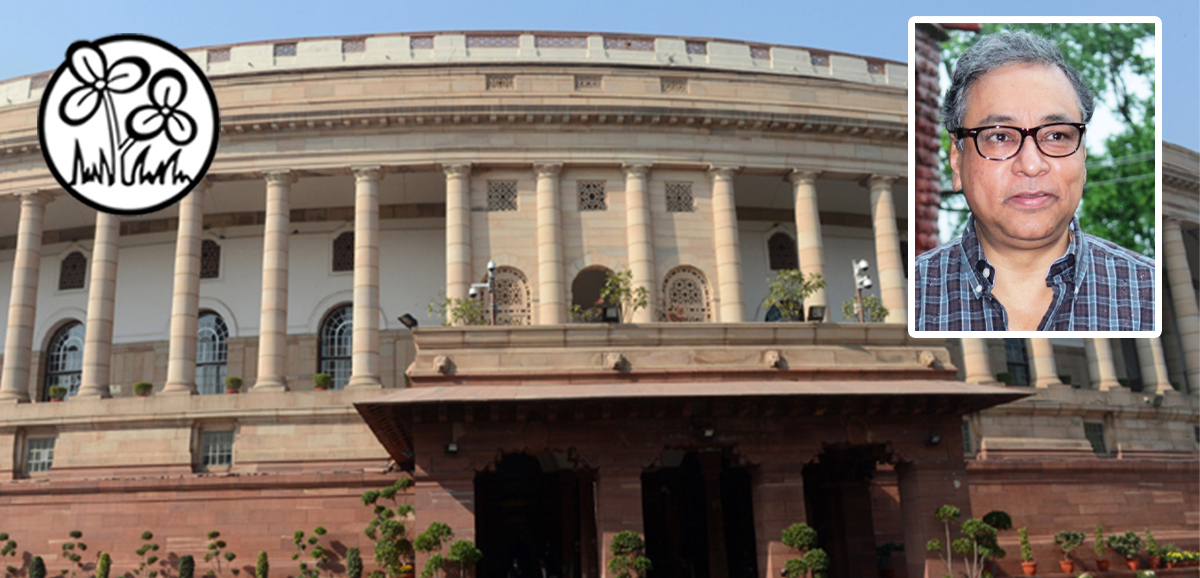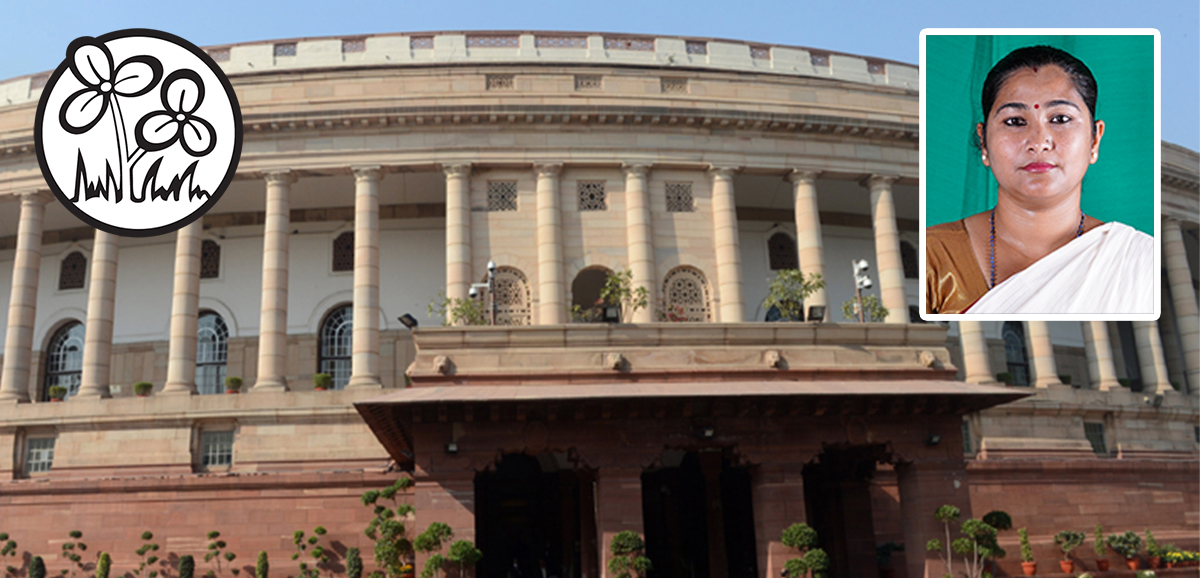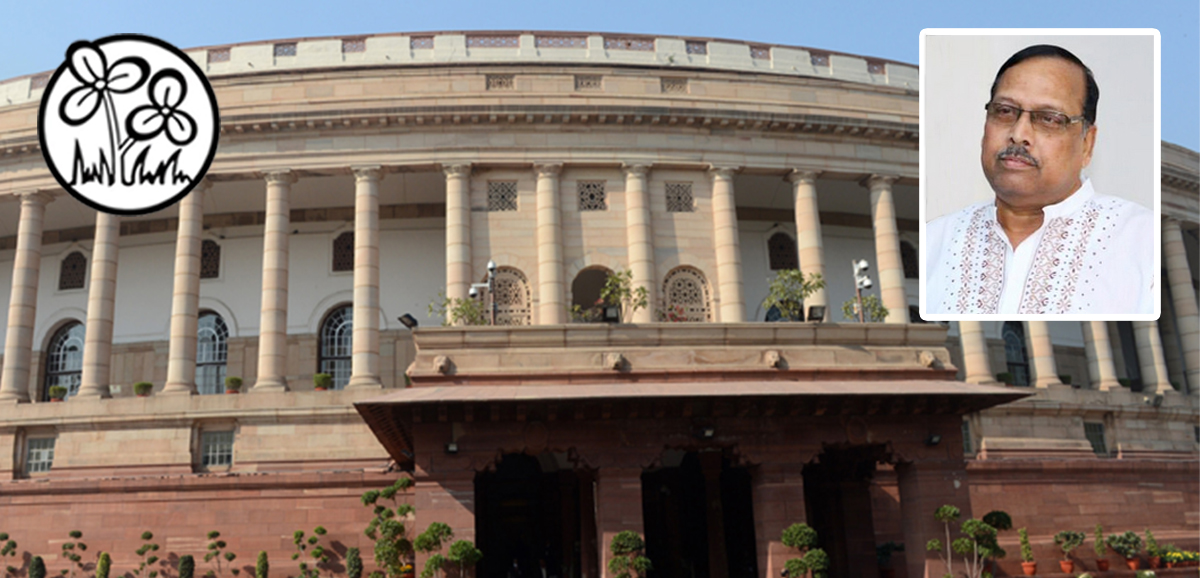Sir, I thank you very much for allowing this discussion on an important subject to be taken up. Sir, the Short Duration Discussion is a time where as Opposition MPs, we get a chance to express ourselves. We thank you not only for taking up this discussion — there is a tradition to take only one Short Duration Discussion every week — but also for extending the time to 4 hours from 2 ½ hours, which is the normal time allotted for Short Duration Discussion. We appreciate that. With the Short Duration Discussion on an issue which is primarily put up by the Members of the Opposition, and, of course, of the Treasury Benches, it will go a long way in having the House running. Sir, you want the House to run 100 per cent without any disruption. On behalf of my Party, Trinamool Congress, let me say — I am sure, many of my colleagues from other parties on this side share the view — that not 100 per cent, till 22nd December, 2023, we will make it sure to run 102 per cent. Give us one Short Duration Discussion next week where I am told over 100 Members of Parliament from 12 – 13 different political parties want to have a discussion on the steps to be taken to strengthen cooperative federalism. We want to discuss this in a meaningful way. Sir, elections come and go. Some win, some lose but the real winner after every election — besides, of course the parliamentary democracy — are the people. Now, I come to the subject of today’s discussion, ‘Economic Situation in the country’. The question is, how is the economy looking. I think, it depends from whose eyes are you looking through? If you are looking at the economy from the point of view of someone who is into the stock market, you should be very happy. Today morning, the Sensex was around 69,000 points; so, you should be happy. If you are looking at the economy through the eyes of the billionaires, you also should be very happy. We have nothing against the billionaires. May their tribe increase! From 142 billionaires in India some three years ago, this number has reached 169. It is good. If you are looking at the economy through the eyes of the richest one per cent of India, you should also be happy because the richest one per cent controls some 40 per cent of the total wealth. And, the Finance Minister is here. Thank you, Madam, for being here because whenever we try and have some meeting of Minister with our State Government, the Minister of State is sent to meet us. And, I really appreciate that the Minister herself is here. So, if you are looking at it through the eyes of the Finance Minister, you should also not have a bad Tuesday afternoon thinking that the GDP is projected to grow at or had grown at 7.6 per cent in the second quarter. But if you look at the economy through the eyes of any family anywhere in the country, what will those eyes, looking at the economy, tell you? Those eyes will tell you that from 2014 to 2023, the price of rice has gone up by 56 per cent, the price of wheat has gone up by 59 per cent, the price of milk has gone by 61 per cent, the price of tomatoes has gone up by 115 per cent and the price of toor dal has gone up by 120 per cent. The gas price has now come down. It came down before the elections. And there is a saying in Bangla — You must have picked up some Bengali. *”People are getting free rice, but the expenses of cooking it are very high.” In other words, the Prime Minister is giving you the gas at a thousand rupees. The rice is free, but the gas is at one thousand rupees. Sir, if you look at this economy, and this is somebody I actually met, her name is Nupur Haati. She is from Hooghly district. Nupur Haati clutches on to her laminated job card because she has not received her MNREGA wages. Or look at the economy through the eyes of 21 lakh workers who, like Nupur Haati, have worked but have not received the wages. It has been two years, even though she was guaranteed 15 days, she has not received these wages, adding up to some Rs. 15,000 crore. That is only one State. If you take all the States, the number will be more. Or if you look at this economy through the eyes of any young man or young woman, he or she will tell you about 25 per cent of youth unemployment. So, through you, Sir, I ask this Government: Has this wealth, which has been created, been passed on equitably? Has it been passed on equally? And that is the point today of what we are discussing. Yes, you have your moments. Give us all the numbers, but has it gone to the bottom of the pyramid? And that is the single point today of what I am trying to say. And, Madam Finance Minister, rural inflation is higher than urban inflation for the first time in six years. This is not election rhetoric. These are hard numbers. Household savings are depleting. These are at a 50 year low in 2022-23. On farmers’ welfare, we have to ask ourselves: Why are 150 farmers committing suicide every day? Yes, let the stock market go up; let the billionaires go up. But spare a thought, or more than a thought for the marginalised, for the vulnerable. India has the world’s highest number of poor people at 23 crores. This is what this debate on the economy should be about. The bottom 50 per cent of our population possesses only 3 per cent of the wealth. And on a Tuesday afternoon, in this plush-looking glitzy building, we must remind ourselves why three out of four Indians cannot afford a healthy balanced diet. Or worse still why two out of three children in India under the age of five die of hunger? Sir, this is not the time to talk about what happened 70 years ago and what happened 60 years ago. That is why without doing any politics, we are presenting some numbers and we want the Government to address these issues and find solutions to these issues. Many promises have been made. I am not going there today on the promises and the delivery. I want to stick very, very clearly with the economy. Sir, the point which I make on this. Thank you, Sir. They told me 12 minutes. I don’t know. Twelve. Sir, while on the subject, nothing to do with this. You know it is difficult for us to see the time because the timers are behind us. I request you to. Thank you, Sir. Sir, then, let me conclude. We have to look at the priorities of this Government. I started off my story with elections. Who wins? Yes, BJP, you win elections. It is another matter when you fight us, you don’t win elections, we win elections. So let’s compare equals. You win. We win. You have an outlook on the economy. Mamata Banerjee’s Trinamool Congress has an outlook on the economy. What is the difference in the outlook? I want to add just three points. Indian economy is expected to grow at 7 per cent in the current financial year. Bengal is growing at 8.4 per cent in the current financial year. I want to leave these numbers here. Because when we are doing this growth in Bengal, it is not a divisive growth; it is an inclusive growth. Everybody is taken along. Sir, let me just finish it; then, you can share it. I am just in the middle of a thought. Let me confirm, Sir, that is the only reason all this happened. I only want to add three points. I gave you the growth number. I want you to take one other number of one social sector view, the Trinamool view, because they win and we win, and the BJP wins. I will give you one more economic number and then I will give you the number on social sector. On the All India Index of Industrial production, the national average in 22-23 is five per cent and Bengal’s growth on this has been eight per cent. This is the economy. I will end with one more example. As I said, it is just one example on the outlook. You have your Beti Bachao Programme. In the outreach for that programme, about 80 per cent of your budget for the programme is for publicity and advertising. My question is: Will this Government in the answer tell us how many women’s lives were actually touched by this programme? In Bengal, which the United Nations acknowledged, we have a programme called Kanyashree. And, if you ask me how many lives were touched, I will give you an exact number. Seventy-eight lakh women benefited. Sir, I will conclude by saying that yes; you win and we win; you have a view on the economy. We have a different view on the economy and there is another very, very big difference between who you are and who we are because we also believe that no one can worship God either in a mosque or in a church or in a big temple or love his neighbour on an empty stomach. Thank you, Sir.
